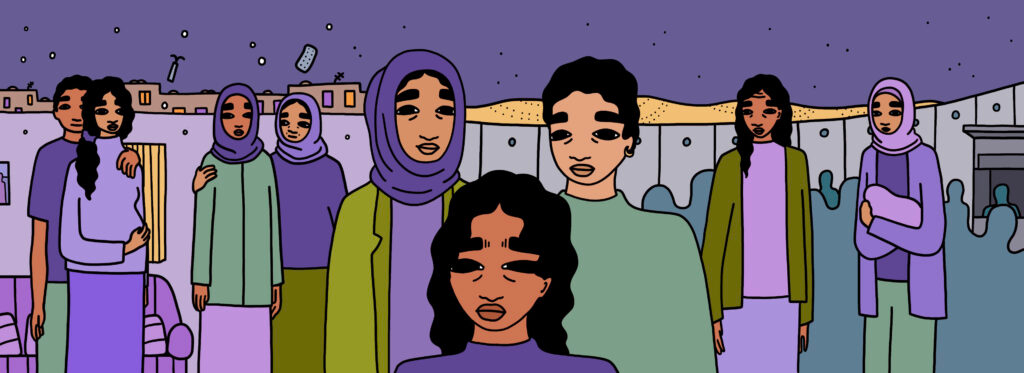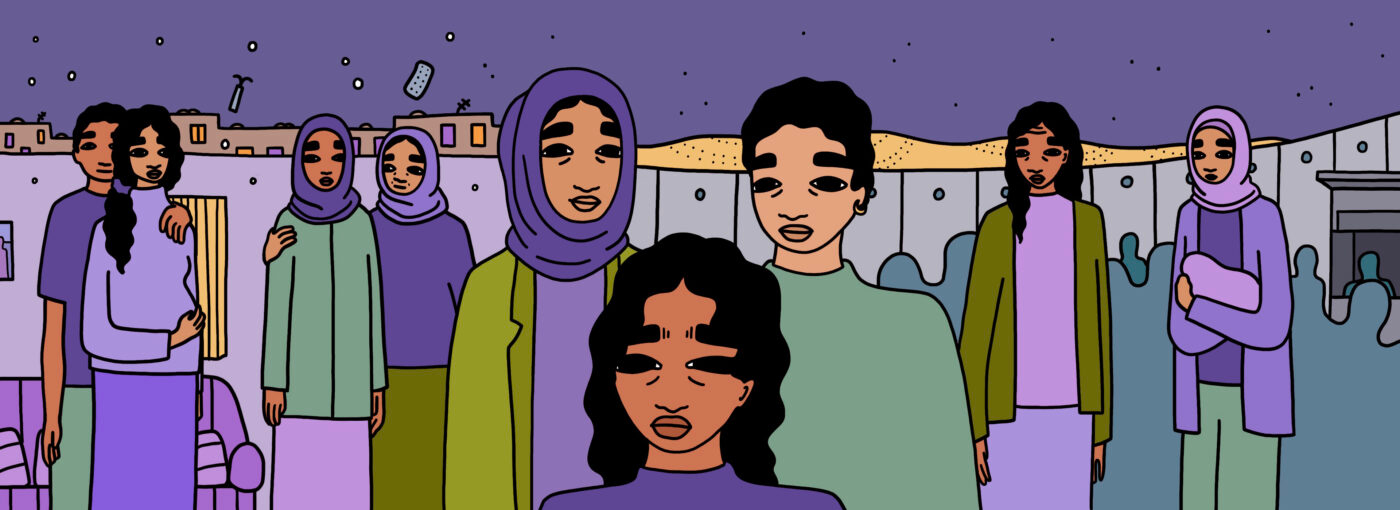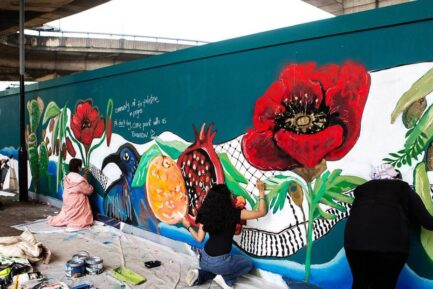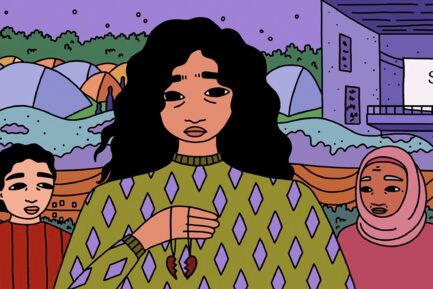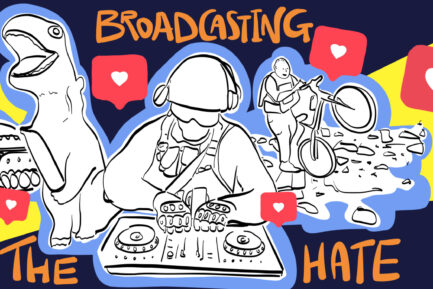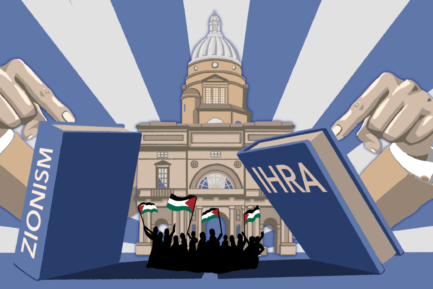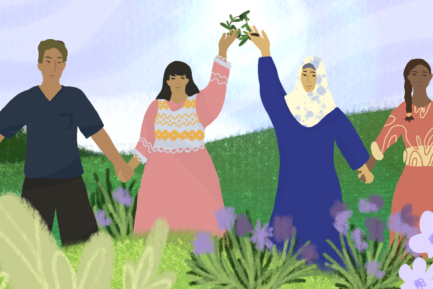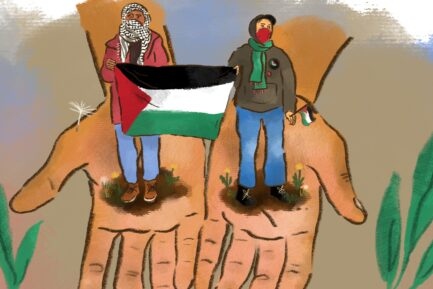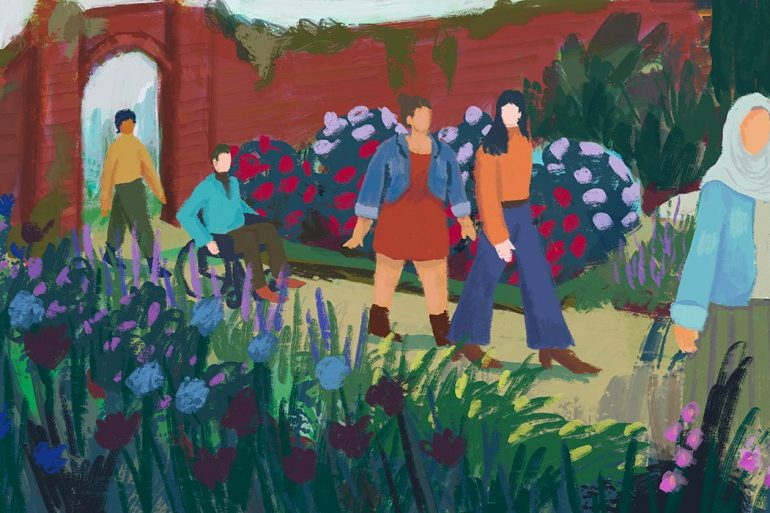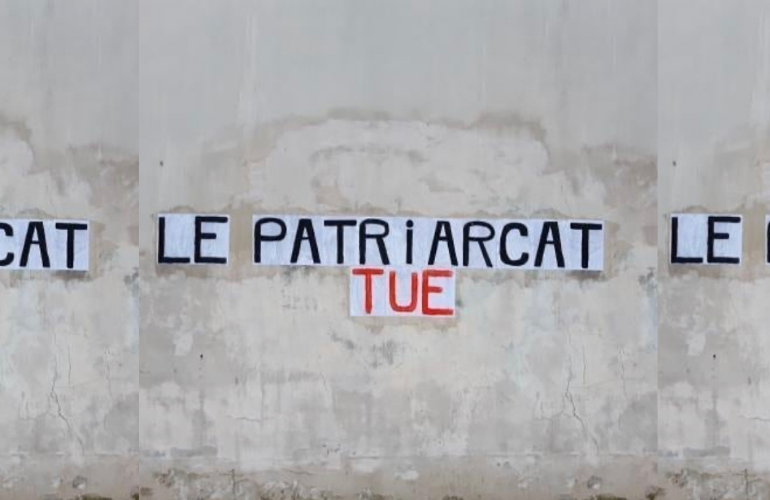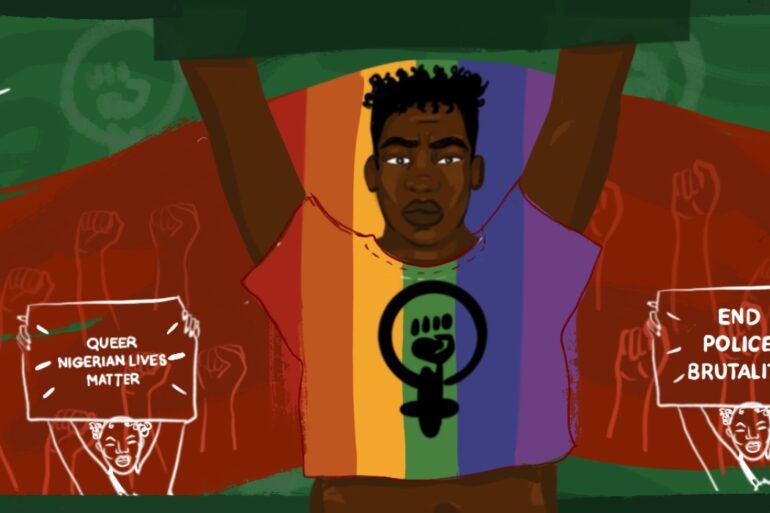“I would never accept an unmarried girl at my clinic,” Malak*, an OB/GYN from Gaza tells me firmly. “This has nothing to do with freedoms, this is religion. In all religions, adultery is forbidden.”
I was dismayed but not shocked to hear a doctor prioritise her religious beliefs over her medical ethics. I have been researching access to sexual and reproductive health services (SRHS) in Palestine for the past three years, and have repeatedly seen how norms sanctifying virginity and shaming non-marital sex are so entrenched in Palestinian society that they supersede a doctor’s duty of care. This is part of a wider pattern in Palestine, and most of the Arab world, where strict gender norms and taboos around sex limit access to SRHS, particularly for women and girls.
This impact on access is particularly exacerbated in Palestine: in addition to the constraints presented by patriarchal taboos, Palestinian women are also subject to constant threats of violence and restrictions on all aspects of their lives from the Israeli occupation.
Social restrictions in Palestine
The patriarchal restrictions Palestinian women face in accessing SRHS take many forms. One is familial control, where both society and the state generally treat women as wards of their husbands or fathers. This is also written into law, where abortion is criminalised except in cases of threat to the woman’s life, and even then, there needs to be written approval from the woman’s husband or guardian. In Gaza, a husband’s consent is even required for women to access family planning services.
Family control also occurs informally, outside of legal requirements. A survey of 204 women in Gaza using contraception found that 41.2% had their method of contraception chosen by their husband. Feras*, a researcher and campaigner for SRH rights in Gaza, affirms this: “Many men don’t let their wives be on contraception, or they want to choose what kind of contraception she’s on. There have been extreme instances when we have given a woman contraception, and she has returned the next day after being punished by her husband.”
Organisations and individuals working on the ground attempt to mitigate the extent of this family control. Sama*, a coordinator for SRH programmes with multiple service providers in Gaza, explains: “We give education sessions to both men and women, because in many contexts, women aren’t the decision-makers. So, we include men in the sessions, to teach them the details of family planning, and hope to impart how it should be a joint decision.”
Family control also goes beyond merely husbands. There have been reports of women’s mothers-in-law accompanying them to their SRH appointments to ensure the husband’s wishes are followed.
“Often, the mother-in-law interjects and feels entitled to this right,” Sama explains, “They pressure their daughter-in-law to have children soon, and to avoid family planning. Even in home visits, the father-in-law would sometimes act as a decision-maker in terms of SRH choices.”
Gender normativity
Strict gender norms not only inhibit access to services in Palestine, but also limit the type of services available. As a woman’s role is generally viewed as solely reproductive, most women’s health services cater to child-bearing or family planning. This leaves little to no services available for menopause-related issues, and almost all SRH clinics close a woman’s file after a year without menstruation.
“Our society only respects the woman’s reproductive role; we only care about her when she’s in delivery, or pregnant,” Nadia*, a long-time OB/GYN and SRHR campaigner based in the West Bank, tells me. “Post-menopausal care or initial screening programmes for menopause are very limited. Even postnatal care is weak – it’s like we only care about women when it comes to their children.”
Gender normativity in the health system doesn’t only affect menopausal women. As Malak unequivocally proves, unmarried women are also left in the lurch. Strict ideas around the value of virginity inhibit unmarried women’s access, where some parents won’t allow their daughters to visit a gynaecologist in fear of an invasive procedure breaking the hymen.
Yasmine*, who works with a SRHS mobile clinic in the West Bank, recounts her experience. “There was a big stigma around unmarried girls attending our clinic. If the village saw an unmarried woman at the gynaecologist, it would be very shameful for them, which would often prevent them from reaching out to our services.”
The impact of the Israeli occupation
After navigating the social restrictions placed on their access, Palestinian women are then subject to the violence and limitations of the Israeli occupation. One of the key impacts of the occupation on SRHS access is through mobility restrictions, namely checkpoints. There are over 700 Israeli checkpoints and road obstacles dotted around the West Bank, which determine every aspect of Palestinians’ movement, even for urgent health services.
Between 2000 to 2007, 10% of pregnant Palestinian women faced delays at checkpoints, with 69 births occurring at checkpoints, 35 infant deaths, and five maternal deaths.
Checkpoints and road closures also increase rates of home births in times of increased conflict, as fears of violence or delays at checkpoints lead women to accept this method of childbirth, despite the higher health risks associated. These fears are justified, as a 2015 study of Jerusalemite women and their childbirth experiences found that a quarter of women surveyed inhaled tear gas while pregnant, as they were crossing a checkpoint attempting to seek SRHS.
Checkpoints not only impact patients seeking services, but the delivery of services themselves. “We often need to refer urgent cases to Israeli hospitals,” Nadia tells me. “One main issue is taking patients to Jerusalem, where the Palestinian ambulance doesn’t have a permit to enter Jerusalem. Therefore, a back-to-back pickup happens at the checkpoint, whether the patient is moved from the Palestinian ambulance into the Israeli ambulance. This is very dangerous for the patient’s health, and delays their access to the hospital.”
These extreme dangers to a woman’s health are not accidental byproducts of the Israeli occupation, but are intentional and inextricably weaved into the wider colonial system, cutting Palestinians off from their land and right to basic services. This can be seen in Area C, which constitutes 60% of the West Bank, and is administered almost completely by Israel. The Israeli authorities ban nearly all construction and maintenance of necessary infrastructure, such as water and sanitation systems, as well as schools and medical clinics.
Lina*, a policy manager at a Palestinian health NGO, tells me how they work to improve sexual health services in areas most impacted by the Israeli occupation. “Area C has no Palestinian Ministry of Health clinics, so services are scattered and scarce,” Lina says. “We reach out to communities in these areas, aiding them in reaching grassroots clinics in nearby cities or villages, as well as working with local women’s associations to build up their own capacities when it comes to SRHS access.”
Reproductive injustice on the Gaza Strip
The impact of the occupation on SRHS is even more stark in the Gaza Strip. Since 2007, Israel has blockaded Gaza from land, sea, and air, taking away Gazans’ freedom of movement, as well as severely limiting or delaying imports of essential supplies and medicines. This is in addition to the regular bombings and military incursions on the Strip, leading to thousands of casualties and destruction of essential infrastructure.
The rate of maternal deaths rises during and after every war on the Strip, partially due to deaths directly resulting from shelling, but also due to overburdening of hospitals leading to fewer available beds and infrastructure such as roads or clinics being destroyed. During the 2014 attack on Gaza, 5,000 births occurred in ‘extreme conditions’, and an estimated 45,000 women were left without access to SRHS.
Subscribe to shado's weekly newsletter
Exclusive event news, job and creative opportunities, first access to tickets and – just in case you missed them – our picks of the week, from inside shado and out.

Medicine for maternal health is also regularly impacted, where iron and folic acids used for micronutrient deficiencies during pregnancy are frequently out of stock. This leads to a rise in anaemia, which impacted 40% of pregnant Gazan women in 2018.
Malak expresses the deprivation faced by clinics operating in Gaza, “We have a shortage of progesterone shots needed for risky pregnancy. I have pregnant patients with epilepsy that can’t find medication,” she laments, “We have to get progesterone shots and other injections from Egypt, and the transport from Egypt to here is really bad. The trucks take a long time, and there’s no proper preservation or transport guidelines followed, so I don’t trust a lot of medications that come”.
These shortages are not only limited to essential medicines, but also to the types of sexual health services available. The Israeli blockade severely limits travel outside of Gaza, preventing doctors from receiving training for new operations and scientific advancements.
“Before the blockade, in 2006, I took a course in America on advanced life support in obstetrics. I came back and trained 200 doctors. There’s been new scientific advancements since, but we can’t get this training and expertise.”
Psychological barriers to access: against the “demographic threat”
The occupation not only poses material and physical barriers to access, but creates psychological barriers as well. This can be seen in Jerusalemite women’s problematised access to abortion services.
Jerusalemite women are in a unique position, where they are under Israeli healthcare and not subject to Palestinian abortion laws, and if they live within Jerusalem’s borders, they do not need to go through a checkpoint to reach a hospital. However, violent Israeli political agendas are so salient that they lead Palestinian women to potentially override their own desires, creating an added psychological barrier to access.
Israeli political agendas have always feared the “demographic threat,” the Palestinian birth rate outnumbering that of Israelis. Palestinians tend to have higher fertility rates than Israelis, leading Israeli politicians to fear an “Arab majority” undermining their vision for a Jewish nation-state.
Israel’s regular killing of Palestinians, arrests of children, and moving Israeli settlers into Palestinian land are all tools to curb the growth of the Palestinian population and ensure Israeli dominance. This, in turn, has encouraged a view of Palestinian childbirth as a form of resistance against Zionist agendas, in both Israeli and Palestinian national narratives. In Palestinian political discourse, bearing and rearing children has come to symbolise an act of defiance to the occupation, ensuring the continuance of Palestinians’ physical existence on their land.
This has made some Jerusalemite women not want an abortion at the hands of an Israeli doctor or within the Israeli healthcare system. In a study on abortion in Palestine, many Jerusalemite women expressed that having a baby is “a form of resistance and annoyance to our occupier”, while others expressed their distrust, stating that “[Israeli doctors] just tell Palestinians that they have foetal anomalies so they abort.”
Living under the overlap of these multiple socio-legal power structures, Palestinian women are constantly navigating and negotiating their rights to personal autonomy. We know, from history and from global experience, that women will continue to informally access sexual health services. Women will have clandestine unsafe abortions, or unmarried girls will find a way to source contraception, but this is not a resourcefulness to be admired, rather a desperation to be lamented. Improving access to SRHS is one of the issues at the heart of the Palestinian woman’s journey to self-determination. The journey to equitable healthcare provision, free from the nexus of apartheid and patriarchy is a difficult one, but is not impossible.
What can you do?
If you want to find out more about the state of sexual and reproductive health in Palestine, there are a number of researchers and organisations you can explore:
- Juzoor is a local Palestinian NGO, focusing on the socioeconomic determinants of health. They run a number of programmes tackling sexual health, from SRH education for youth and adolescents, to advocating for equitable SRH legislation in Palestine. You can read more about their work and donate to them here.
- The Palestinian Medical Relief Society runs a number of women’s health programmes, including a reproductive health mobile clinic made to provide services to remote areas. You can donate to them and read more here.
- The Palestinian Family Planning and Protection Association advocates for sexual and reproductive rights in Palestine, and provides SRH services to marginalised areas. They advocate for access to safe abortions, the elimination of sexually transmitted infections, and ensuring all Palestinian youth can make well-informed choices regarding their sexual health. You can read more about their work here.
- There are also a number of researchers working on SRH or women’s health in Palestine, such as Weeam Hammoudeh, Sarah Shahawy, or Layaly Hamayel.
- Listen to this podcast with Palestinian SRH worker Enas Dajani, sharing her experiences as an SRHR advocate in Palestine.
- Read this article by SRH worker Duha Shellah, outlining the complexities faced in providing SRHS in Palestine.
- Read shado’s Knowledge Page: What is Reproductive Justice?
- Read shado’s Knowledge Page: What is Zionism?
